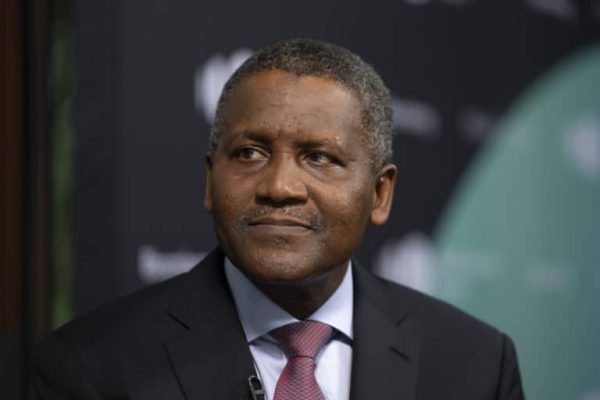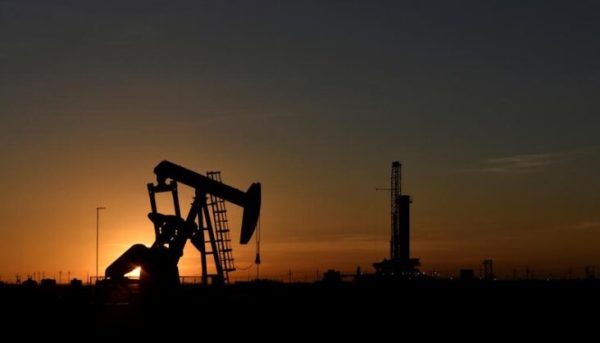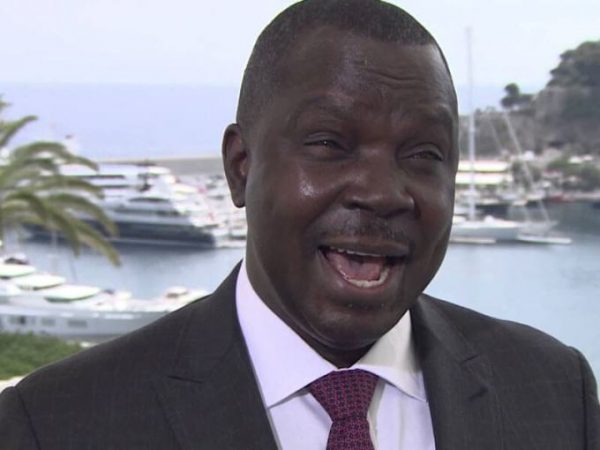Dangote Refinery Designed To Process Nigerian Crude – CEO

The President and Chief Executive of Dangote Group, Alhaji Aliko Dangote, has stated that his $20bn Dangote Petroleum Refinery was built to use Nigerian crude and add value to it within the country.
Dangote, who stated this in a statement issued by the refinery on Thursday, asked why should the plant deviate from this focus, as he admitted that the refinery had also been refining crude oil grades from Europe, the United States, and other countries.
Africa’s wealthiest man further noted that the domestic crude oil supply issues in Nigeria were being resolved by the parties involved.
The statement said the refinery has already affected crude flows, with dozens of Nigerian cargoes remaining in-country and US WTI Midland, a comparable light, sweet grade, being imported. It said the mega-refinery could therefore tighten the light, sweet crude market.
“Its diet is WTI and the lighter Nigerian (crudes) so if you were chasing those barrels you’d probably feel it quite keenly,” the statement stated that a West African crude trader told Commodity Insights.
It said WTI Midland crude initially emerged as the favoured feedstock to supplement Nigerian supply, with the refinery signing long-term supply contracts for the US grade and noting its competitive pricing.
It stated that crude flows in and out of the Dangote refinery have been felt in other markets, especially in Europe, the largest consumer of light, sweet Nigerian crude.
“The US grade has accounted for 30 per cent of crude delivered to Dangote, through 18 cargoes,” the multi-billion dollar company stated in the statement.
It said Dangote stated that the facility would broaden the refinery’s feedstock sources with Libyan, Angolan, and Brazilian crude.
“The refinery was built to use Nigerian crude and add value to it within Nigeria. Why should we deviate from that focus?” Dangote stated, adding that the crude supply issues were “getting resolved”, but that the refinery remained open to all opportunities “to supplement it”.
“Dangote refinery is designed to process a range of light and medium grades of crude oil, including Nigerian grades,” said Rasool Barouni, Associate Director and head of Refining at S&P Global Commodity Insights. “Other similar grades including other WAF grades could be an option.”
Nigeria is sub-Saharan Africa’s largest oil producer, pumping 1.5 million barrels per day in June, according to the Platts OPEC Survey from S&P Global Commodity Insights.
Until this year, all of its oil was exported due to the lack of refining capacity, with gasoline, diesel, and jet fuel imported for domestic use.
The statement also noted that the Organisation of Petroleum Exporting Countries said supplies from Dangote Refinery and Petrochemicals would put pressure on the performance of Europe’s oil industry, especially the Northwest Europe gasoil.
It stated that OPEC in its monthly Oil Market Report for June 2024 listed Dangote refinery among the top diesel and jet fuel suppliers that would disrupt Europe’s oil and gas Industry, a development experts forecasted would positively impact the Nigerian economy.
Recall that Standard & Poor Global quoting trading and the ship tracking sources had earlier predicted that Nigeria’s $20bn Dangote refinery would shake up international crude flows when it reaches full capacity, having already made an impact since coming online in January, trading sources and ship tracking data show.
In another development, the Dangote refinery clarified its stand on crude supply to the plant.
“Our attention has been drawn to media reports alleging that the Dangote refinery has backtracked by acknowledging that NNPC supplied about 60 per cent of the 50 million barrels we lifted.
“To clarify, we have never accused NNPC of not supplying us with crude. Our concern has always been NUPRC’s reluctance to enforce the domestic crude supply obligation and ensure that we receive our full crude requirement from NNPC and the IOCs.
“For September, our requirement is 15 cargoes, of which NNPC allocated six. Despite appealing to NUPRC, we’ve been unable to secure the remaining cargoes. When we approached IOCs producing in Nigeria, they redirected us to their international trading arms or responded that their cargoes were committed.
“Consequently, we often purchase the same Nigerian crude from international traders at an additional $3-$4 premium per barrel which translates to $3-$4 million per cargo,” the refinery stated in a statement issued on Thursday.
It still insisted that “we are unable to secure our full crude requirement from domestic production and urge NUPRC (Nigerian Upstream Petroleum Regulatory Commission) to fully enforce the domestic crude supply obligation as mandated by the PIA.”







